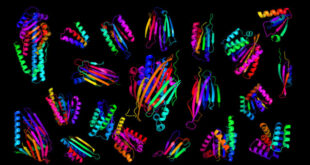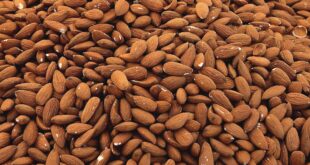A new study led by the National Institute on Aging shows that a long daily period of fasting improves the health and survival of male mice, regardless of caloric intake, diet composition, and body weight.
Increasing daily fasting times made mice healthier and live longer compared to mice who ate more frequently. Image credit: Mitchell et al, doi: 10.1016/j.cmet.2018.08.011.
“Increasing daily fasting times, without a reduction of calories and regardless of the type of diet consumed, resulted in overall improvements in health and survival in male mice,” said lead author Dr. Rafael de Cabo, chief of the Translational Gerontology Branch of the National Institute on Aging’s Intramural Research Program.
“Perhaps this extended daily fasting period enables repair and maintenance mechanisms that would be absent in a continuous exposure to food.”
Dr. de Cabo and his colleagues from the National Institute on Aging, the University of Texas Health Science Center at San Antonio, the University of Wisconsin-Madison and Louisiana State University randomly divided 292 male mice into two diet groups.
One group received a naturally sourced diet that was lower in purified sugars and fat, and higher in protein and fiber than the other diet.
The mice in each diet group were then divided into three sub-groups based on how often they had access to food.
The first group of mice had access to food around the clock. A second group of mice was fed 30 percent less calories per day than the first group. The third group was meal fed, getting a single meal that added up to the exact number of calories as the round-the-clock group.
Both the meal-fed and calorie-restricted mice learned to eat quickly when food was available, resulting in longer daily fasting periods for both groups.
They showed improvements in overall health, as evidenced by delays in common age-related damage to the liver and other organs, and extended longevity.
The calorie-restricted mice also showed significant improvement in fasting glucose and insulin levels compared to the other groups.
Interestingly, the researchers found that diet composition had no significant impact on lifespan in the meal fed and calorie restricted groups.
“This study showed that mice who ate one meal per day, and thus had the longest fasting period, seemed to have a longer lifespan and better outcomes for common age-related liver disease and metabolic disorders,” said Dr. Richard J. Hodes, Director of the National Institute on Aging.
“These intriguing results in an animal model show that the interplay of total caloric intake and the length of feeding and fasting periods deserves a closer look.”
The study was published in the journal Cell Metabolism.
_____
Sarah J. Mitchell et al. Daily Fasting Improves Health and Survival in Male Mice Independent of Diet Composition and Calories. Cell Metabolism, published online September 6, 2018; doi: 10.1016/j.cmet.2018.08.011
 #Bizwhiznetwork.com Innovation ΛI |Technology News
#Bizwhiznetwork.com Innovation ΛI |Technology News




